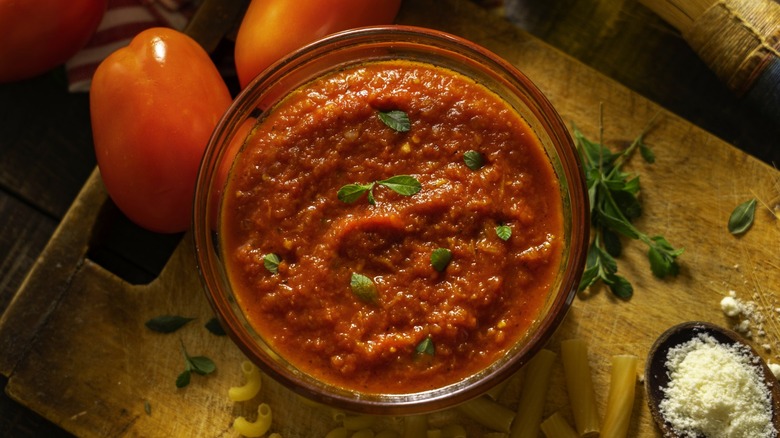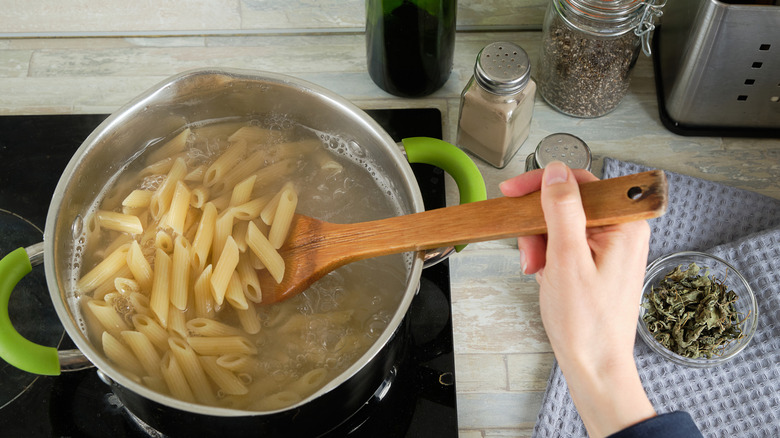Good Homemade Pasta Sauce Requires Balancing One Key Ingredient
The make or break of practically any savory dish is salt, but getting it just right requires a thoughtful balancing act. Too little of it and your dish winds up tasting like nothing as the various spices and aromatics in the mix fall flat. Too much of it and the dish becomes inedible. While seasoning can vastly vary depending on the ingredients involved, salt is the holy grail needed for a harmonious dish — especially when it comes to pasta. To learn more about how salt plays a crucial role in homemade pasta sauce in particular, Antonio Morichini, chef and owner of Italian eatery Via Vai in New York City offers his established insight.
According to him, "The key is to make sure the sauce has the right amount of salt (and pepper, if called for). In Italy, traditional red sauce is called pomodoro, and if you add hot pepper it becomes arrabbiata (meaning angry) because it's spicy. Marinara sauce is a tomato base with additional ingredients like tomato paste, dried oregano and more."
As for boiling the pasta itself, he warns that although salt is a key ingredient in the water, "You can always add more salt to pasta water, but you can't remove it." Begin with at least a teaspoon of salt and work your way up, if needed. Most of the salt stays in the water so the sodium involved is less than you might expect. Although kosher salt is a good start, if you're looking for a little more character in your pasta sauce, try adding fennel for a more authentic Italian touch.
When to add salt to pasta dishes
A typical pasta dish will be salted at least twice in the cooking process: once when boiling the pasta in salted water and again when balancing the flavor of the sauce. Occasionally, the latter can be minimal when seasoned ingredients and salted water bring enough flavor to the dish ... or if you add salty ingredients to the sauce like anchovies, Parmigiano Reggiano, and olives.
When salting pasta water, wait until the water has reached a boil. Then, add your pasta and follow the cooking directions. Morichini recommends removing your pasta from the boiling water about a minute before it's cooked to your liking. This is because the pasta will finish cooking when mixed in with the pasta sauce.
When making pasta sauce, it's smart to incorporate salt little by little. Start by seasoning meat and vegetables as you add them to heat. As for salting the pasta sauce in its entirety, go easy at first — as Morichini pointed out, you can always add more — then mix in the pasta water and your final ingredients before giving the dish a taste and a final pinch of salt, if desired.

